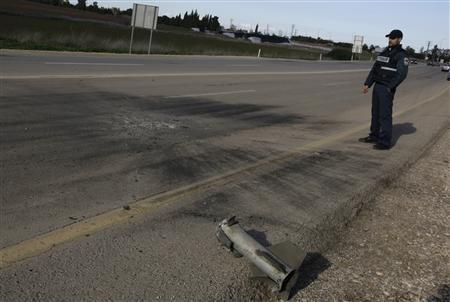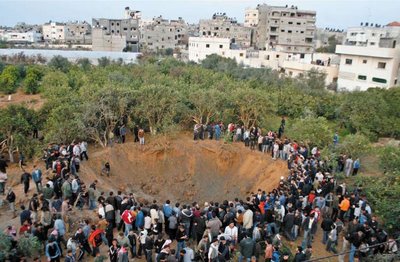 Er Danmark i virkeligheden et provinsielt lorteland, et uvidende, tilbagestående bondesamfund, befolket af bønder, der er kommet til penge og blevet kræmmere, men stadig i hjertet er overbevist om, at livet er, som vor mor altid sagde det var, og at verden ender for enden af Lars Pæsens mark, og det ganske uanset, hvad alle de fine herrer fra Aarhus eller Kiöbenhawn mon finder på at sige?
Er Danmark i virkeligheden et provinsielt lorteland, et uvidende, tilbagestående bondesamfund, befolket af bønder, der er kommet til penge og blevet kræmmere, men stadig i hjertet er overbevist om, at livet er, som vor mor altid sagde det var, og at verden ender for enden af Lars Pæsens mark, og det ganske uanset, hvad alle de fine herrer fra Aarhus eller Kiöbenhawn mon finder på at sige?
Måske ikke, trods alt. Men det kan være svært at forestille sig et sted, hvor politiske positioner i den grad indtages og fastholdes uden nogen som helst viden om eller kendskab til det område, der dog er positionens genstand.
Et godt eksempel er klimaområdet, hvor forbløffende mange beslutter sig for det ene eller det andet uden så meget som at skele til de tilgængelige og forholdsvis let forståelige fakta i sagen.
På samme måde har jeg svært ved at forestille mig nogen steder, hvor den “borgerlige” fløj helt så kritikløst og ureflekteret sluger den israelske propaganda i sagen om den igangværende offensiv mod Gaza og endda selv supplerer denne propaganda med deres helt egne “kulturelle” indsigt i konfliktens og palæstinensernes natur, tilsyneladende helt uden nogen som helst historisk, kulturhistorisk, religionshistorisk eller for den sags skyld almenmenneskelig indsigt.
Et godt eksempel på det sidste er gårsdagens leder i 180 grader, der efter en vis formel beklagelse af den israelske brutalitet lægger skylden for de seneste rædsler på palæstinenserne, nærmere bestemt på den angivelige “dødskult” i det palæstinensiske samfund.
Hvordan det? Jo, palæstinenserne ærer deres døde, og de ærer de mennesker, der giver deres liv i kampen mod israelerne, som “martyrer”. Og på grund af denne “dødskult” sætter palæstinenserne altså sig selv op for de israelske angreb, lægger så at sige selv deres spædbørn under de frembrusende israelske tanks; eller, som lederskribenten i 180 grader udtrykker det:
Mens unge israelere drømmer om at blive iværksættere, og har rollemodeller i de iværksættere, der er nået på Nasdaq-indekset, drømmer store dele af den palæstinensiske ungdom i stedet om at blive martyrer, og har deres rollemodeller i de islamiske terrorister, som allerede har opgivet deres liv i kampen mod Israel.
Og her der det så, kæden i mine øjne hopper af. Der er krig, og de unge palæstinenseres land er besat af en tilsyneladende ganske brutal besættelsesmagt. Hvis modstandsfolk vækker beundring, kan det kun være svært at forstå, hvis vi samtidig vælger at være døve og blinde for vor egen historie.
Hvad siger vi f.eks. om de ganske få unge mænd, der blev dræbt under forsvaret af Danmark den 9. april 1940?
“De gav deres liv”. Og dem, der døde eller blev henrettet under modstandskampen? “De gav deres liv”, siger vi, som regel i beundring. Den italienske partisansang “Bella Ciao” handler om en ung mand, der går i døden med vidt åbne øjne og genopstår gennem de blomster, der spirer på hans grav.
Mindeparken i Århus indeholder navnene på tusinder af sydslesvigere, der faldt i 1. Verdenskrig. Det næste skridt, som ikke er den danske nationale tradition fremmed heller, er at håbe på at få lov til at være blandt de faldne, de heldige, der får lov at give deres liv for Fædrelandet. Dette er ikke nødvendigvis defaitisme á la “de levende skal misunde de døde”, men en dyrkelse af ofret og offerviljen.
Slår man op i en sangbog fra den danske nationalromantiske tradition, 1848 og 1864 og alt det dér, slår denne holdning én i møde fra sang efter sang, side op og side ned.
Den samme tankegang gennemsyrer den kristne martyrdyrkelse, hvilket kunne give sig absurde og nærmest komiske udslag: Under det mauriske herredømme i Spanien var straffen for blasfemi som regel døden (som den også var det i Danmark under Christian d. 4.). I en periode havde man store problemer med “pseudomartyrer”: Ufordragelige kristne, som henvendte sig til den lokale dommer, udspyede de mest hårrejsende fornærmelser mod profeten og islam, som de kunne finde på, i håb om at få lov til at dø for deres tro og måske en dag blive helgenkåret. Begge håb blev dog i reglen gjort til skamme, det var naturligvis meget klogere at ignorere dem og bede de kristnes biskop om selv at få styr på sine tropper.
I Indien finder man en nationalistisk dyrkelse af den unge marxist Bhagat Singh, der gav sit liv i kampen mod englænderne, måske en slags pendant til den unge danske digter Morten Nielsen, der i hvert fald i min ungdom indgik i den officielle kanon over unge modstandsfolk, der gav deres liv i kampen for Danmark, og hvis eksempel man bør lægge sig på sinde. Under 1. Verdenskrig holdt man i England deciderede propaganda-vaudeviller, hvis formål var at få de unge mænd fra publikum til at melde sig, og hvor man også lagde vægt på det ærefulde i at give sit liv for sit land.
Digteren Rudyard Kipling deltog selv i hverve-shows med flag over det hele, hvilket vendte sig til sorg, da hans egen svagtseende søn ikke kom tilbage fra slaget om Loos. Han kunne dog trøste sig med, at hans søn havde givet sit liv som en mand, “lots of people are in our position, and it’s something to have bred a man”.
Mere generelt og mere rimeligt findes en sådan “dødskult” vel overalt, hvor man overhovedet har en forestilling om at arbejde eller kæmpe for noget, der er større end én selv. Vi mennesker er her kun på lånt tid, og vi kan alle sammen gå hen og dø den dag i morgen – vi kan håbe og tro, det kommer til at forholde sig anderledes, men vi har ingen “ret” til, at det skal forholde sig anderledes. Hvis der er noget af blivende værdi, som vi gerne vil gøre for vores verden, vores land, vores gud eller vores børn, må vi altså hellere se at komme i gang nu, for ellers kan det let være for sent. I morgen kommer måske ikke.
Og hvis der er noget af blivende værdi, som vi kan gøre for vores verden, vores land, vores gud eller vores børn, som kræver, at vi selv giver eller risikerer vores liv, er der så nødvendigvis tale om en “dødskult”? Næppe – og det er da heller ikke den officielle linje, når vi taler om de unge mænd, der desværre ganske meningsløst ofrer deres liv i Afghanistan.
Snarere er der tale om, at der er ting, vi anser for større end os selv, og at det kan være nødvendigt at sætte os selv ind som indsats. Men dette er en almenmenneskelig erfaring. Den egentlige tragedie i Mellemøstkonflikten er måske snarere, at Israel efterhånden har begået så mange forbrydelser mod den palæstinensiske civilbefolkning, at hadet til Israel for mange bliver større end den enkeltes eget liv. Men måske vi skulle vente, til vi selv har set vores far, mor, søster og bror myrdet for de indkommende bomber, før vi dømmer dem for det.
Og lad os, for nu at slutte hvor jeg begyndte, som nation begynde at tænke før vi taler, så vi ikke kommer til at spilde mere af vores tid og kostbare opmærksomhed på uvidende idioter som 180 graders lederskribent.
 Er Danmark i virkeligheden et provinsielt lorteland, et uvidende, tilbagestående bondesamfund, befolket af bønder, der er kommet til penge og blevet kræmmere, men stadig i hjertet er overbevist om, at livet er, som vor mor altid sagde det var, og at verden ender for enden af Lars Pæsens mark, og det ganske uanset, hvad alle de fine herrer fra Aarhus eller Kiöbenhawn mon finder på at sige?
Er Danmark i virkeligheden et provinsielt lorteland, et uvidende, tilbagestående bondesamfund, befolket af bønder, der er kommet til penge og blevet kræmmere, men stadig i hjertet er overbevist om, at livet er, som vor mor altid sagde det var, og at verden ender for enden af Lars Pæsens mark, og det ganske uanset, hvad alle de fine herrer fra Aarhus eller Kiöbenhawn mon finder på at sige?


